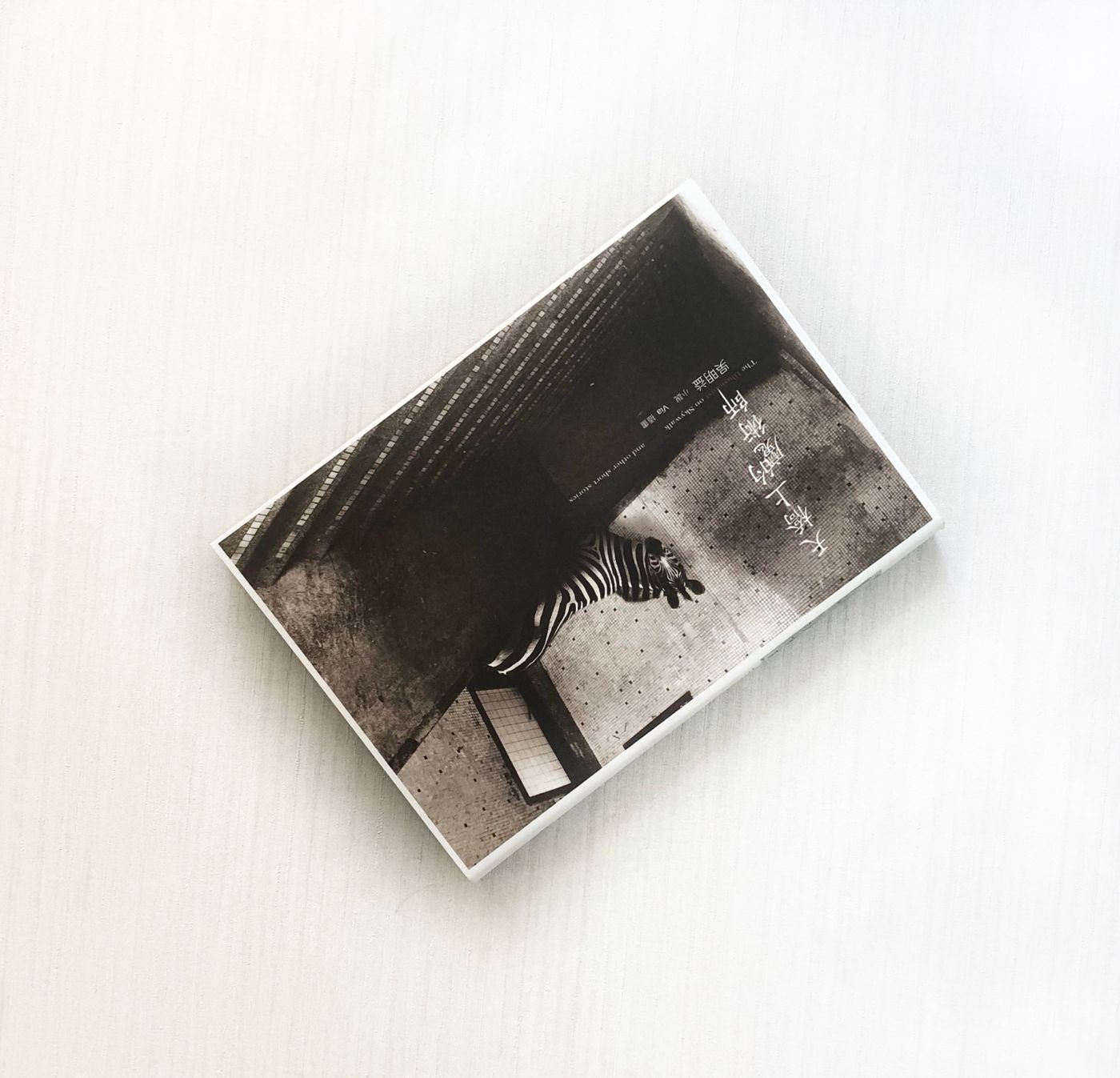[Reading Notes] Summoning Nostalgia for Zhonghua Shopping Mall with the Magic of Memory - "The Magician on the Overpass"
When I asked if they remembered the magician on the flyover, some of them completely forgot, and asked, "Is there really a magician on the flyover?" Of course, some people remember, which made me relieved. The existence of that magician is like the existence of some kind of conscious overpass to me. Without magicians, there would be no overpasses, and without overpasses, the shopping mall would be broken, and it would not be a shopping mall.

The most talked about Taiwanese drama in 2021 may be the work "The Magician on the Flyover" directed by Yang Yazhe, adapted from Wu Mingyi's novel. In addition to the novel fans who want to witness how the Chinese shopping mall in the text is rebuilt, as the TV drama continues, there must be more people who have not read the novel before and want to see what the original book actually wrote.
In the process of watching the play, the author re-read the novel once, and deeply realized the difference between the content of the play and the book after the adaptation, as well as the sense of gap caused by the visual limitation of imagination. However, the TV series itself has its own uniqueness because it involves more social issues. On the whole, novels are introverted, while TV dramas are more extroverted and more in line with the public's taste. The author still recommends that after watching the drama, re-read the novel, which may have an experience that will not interfere with each other.
"The Magician on the Flyover" is a collection of novels published by writer Wu Mingyi in 2011. The content contains ten interrelated novels and nine growing up stories who once lived in Zhonghua Mall. Compared with other works, only the traces of the shopping mall can be seen faintly. This work presents the author's childhood perspective and the memories of the Chinese shopping mall in front of readers. Through the "magician" as the key character, the author summoned the "nostalgia" for the Zhonghua shopping mall, as well as those memories of the past, and between the lines also faintly revealed the emotion of right and wrong.
Tom lived on the third floor of the shopping mall at the time. His father from another province, who escaped from Shandong and came to Taiwan, opened a shop selling pot stickers, steamed buns, and millet porridge on the second floor. The primary school was opposite their house, and he only had to walk over a flyover to get there. . The Mark family opened a hardware store on the first floor of the mall next door. Tom wakes up every day and gets ready, carrying a plastic water bottle with a red cap on his back, walking across the overpass from Ai Building to Xin Building, going around to Mark's house, climbing up to the iron window of the small attic and knocking on the window glass, wakes Mark and waits for him to go to school with him. After walking over the long overpass, turn right when you get off the bridge, and you will first pass the entrance of the shop with "West Point Bread" written on the sign of Rose's house. The signboard really only said "Western Pastry". At that time, the students thought that "Western Pastry" was the name of the store.
Since it is a memory, of course, various details about the Chinese shopping mall are indispensable. Through the writer's precise narrative ability, readers seem to be able to imagine themselves traveling through time and space, walking beside the protagonist, walking in the shopping mall that has long been gone, and experiencing childhood with them. However, compared with the children in the play, where everything is refracted by the childish mind, the book is closer to the eyes of an adult now, to cherish and mourn for everything that has passed.
Whether it's the love between two young and innocent, or various changes in the family, all the stories are covered with a touch of sadness. In the story "An Elephant in a Street with Hazy Daylight", the father of the protagonist who opened a watch shop resented that the mechanical watch was "flickered by the battery, thinking that he could tell the world what time is". The replacement of the table also seems to make people feel the unwillingness of the shopping mall to be eliminated by the times.
Every road in this city looks like it has been repaired by the wind and frost, and the traces of those repairs are so scribbled that at a glance, it is known that the future will be broken again.
"Sometimes what you remember in your life is not what your eyes see." In the book, the magician once said to Xiaodian. Although director Yang Yazhe said in an interview that compared with the TV series, which wants to express "disappearance is the real existence", the novel is about "disappearance", but perhaps what the two want to convey is actually the same goal.
It happened to be demolished in the year when the author was born. People of our generation may not have a deep memory of Zhonghua Shopping Center, but it was also an indispensable existence in the lives of people in old Taipei. For the children who grew up in it, Zhonghua Mall is more like their world. Although specific things will die out one day, the magician "memory" can recall the fragments that once existed at any time. And since we can still remember, who can say it doesn't exist?
Like my work? Don't forget to support and clap, let me know that you are with me on the road of creation. Keep this enthusiasm together!





- Author
- More